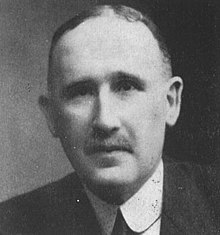Carlos Arniches
In the following article, we will thoroughly explore Carlos Arniches and its impact on various aspects of everyday life. From its influence in the workplace to its relevance in the personal sphere, Carlos Arniches has been the subject of numerous studies and debates over the years. Through a comprehensive analysis, we will examine the many facets of Carlos Arniches, its implications in today's society, and how it has evolved over time. Additionally, we will explore the different perspectives and opinions of experts in the field, with the aim of providing a comprehensive and detailed view on this relevant topic.
Carlos Arniches | |
|---|---|
 Carlos Arniches | |
| Born | 11 October 1866 Alicante, Spain |
| Died | 16 April 1943 (aged 76) Madrid, Spain |
| Nationality | Spanish |
| Occupation | playwright |

Carlos Arniches Barreda (11 October 1866 – 16 April 1943) was a Spanish playwright, born in Alicante. His prolific work, drawing on the traditions of the género chico, the zarzuela and the grotesque, came to dominate the Spanish comic theatre in the early twentieth century.
After starting his career as a novelist and journalist, Arniches turned to theatre in 1888 with the publication of his first play, Casa editorial. Much of his work is set in lower-class Madrid and uses colloquial language, song, dance and music.
Arniches was complimented in a 1935 interview by Federico García Lorca, often a scathing critic of contemporary Spanish theatre, as 'more of a poet than almost any of those who are writing theatre in verse at the moment'.
Following the end of the Spanish Civil War, the social dramas of Carlos Arniches were among the relatively non-controversial plays allowed by the new government.
Notes
- ^ "Arniches (y Barrera), Carlos" in The New Encyclopædia Britannica. Chicago: Encyclopædia Britannica Inc., 15th edn., 1992, Vol. 1, p. 577.
- ^ Dowling 2011, para. 1 of 3
- ^ Dowling 2011, para. 3 of 3
- ^ "Federico García Lorca y el teatro de hoy", interview with Nicolás González Deleito, in García Lorca 1997, p. 564
- ^ Vilches de Frutos 1999, p. 513
References
- Dowling, Gwyneth (29 October 2011). "Carlos Arniches Barreda". Out of the Wings: Authors, Plays & Translators. King's College, London. Archived from the original on 23 March 2016. Retrieved 12 June 2012.
- García Lorca, Federico (1997). Miguel García-Posada (ed.). Obras Completas III: Prosa. Barcelona: Círculo de Lectores/Galaxia Gutenberg.
- Vilches de Frutos, M.F. (1999). "Theatre". In Rodgers, Eamonn (ed.). Encyclopedia of Contemporary Spanish Culture. London: Routledge. pp. 513–516.
Further reading
- Falska, Maria. El universo dramático de Carlos Arniches: Aproximación a una lectura estructural del texto, UMCS, 2006, ISBN 8322724934.